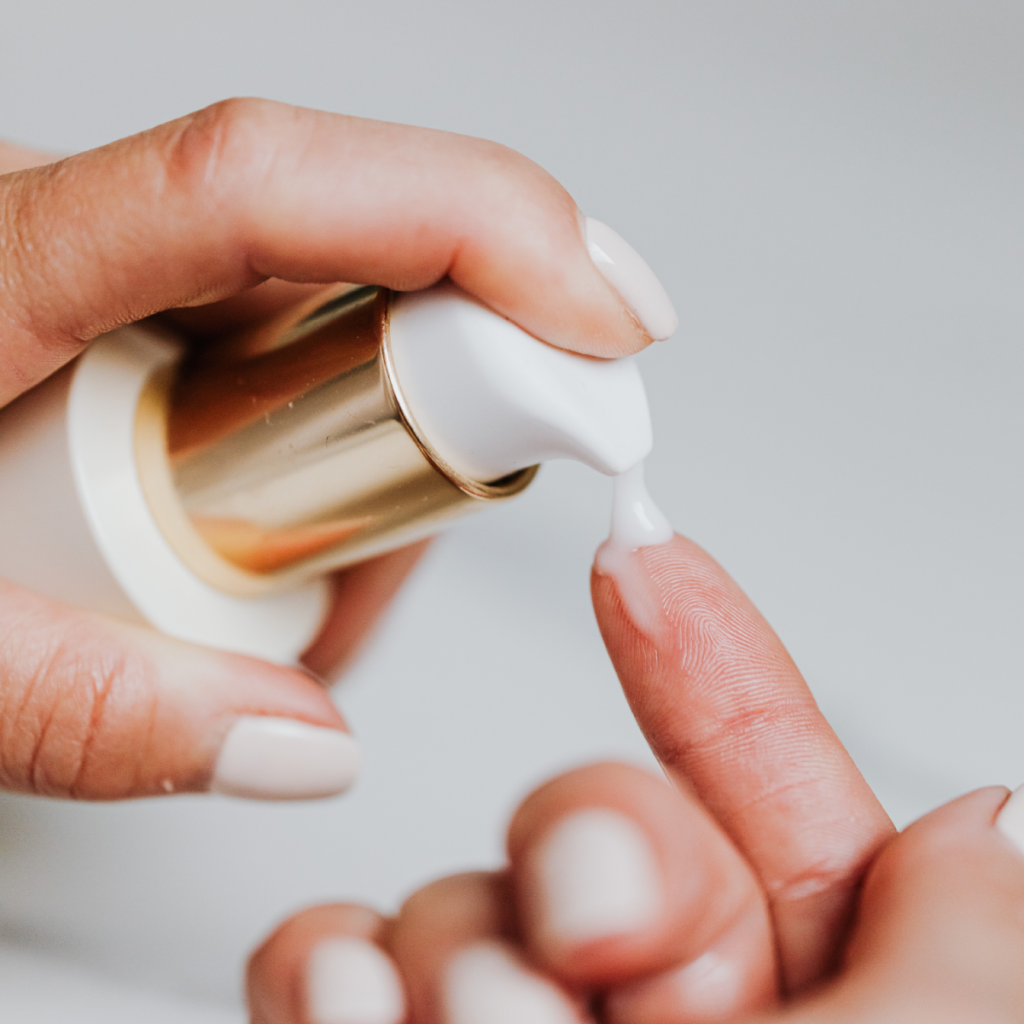Discover the benefits of Polysorbate 20 and learn how this versatile ingredient is used in various industries.
What Is Polysorbate 20 and What Are Its Benefits?
In the world of chemicals, there’s one name that just sounds so cool – Polysorbate 20. It’s like something out of a sci-fi movie! But what exactly is Polysorbate 20 and why should you care? Well, my curious reader, that’s exactly what we’re about to delve into. So sit back, relax, and let’s explore this fascinating substance together!

Understanding Polysorbate 20
Before we dive into the nitty-gritty details, let’s start with the basics. Polysorbate 20 is a type of surfactant that belongs to the polysorbate family. Now you might be wondering, what on earth is a surfactant? Well, my friend, surfactants are compounds that help to reduce surface tension between liquids or between a liquid and a solid. In simpler terms, they make it easier for substances to mix together, like the sugar dissolving in your coffee. Pretty neat, huh?
Surfactants are widely used in various industries, including personal care, pharmaceuticals, and food. They play a crucial role in products such as shampoos, lotions, creams, and even processed foods. Without surfactants like Polysorbate 20, these products wouldn’t have the same consistency or effectiveness.
Now, you may be thinking, “Okay, that’s cool and all, but what’s so special about Polysorbate 20?” Well, my inquisitive reader, let’s find out!
The Chemical Composition of Polysorbate 20
Polysorbate 20 is composed of a mixture of fatty acids, ethylene oxide, and sorbitol. Fatty acids are those long carbon chains that make up fats, while ethylene oxide and sorbitol are both organic compounds. This unique combination gives Polysorbate 20 its exceptional properties, making it an incredible emulsifier and solubilizer.
Emulsifiers are substances that help to mix two immiscible substances, such as oil and water. In the case of Polysorbate 20, it acts as a bridge between oil and water, allowing them to blend seamlessly. This property is particularly useful in the formulation of creams and lotions, where oil and water components need to be combined to create a stable and homogeneous product.
Solubilizers, on the other hand, are substances that enhance the solubility of certain ingredients in a solution. Polysorbate 20 excels in this area, as it can solubilize various substances that would otherwise be insoluble in water. This property makes it a valuable ingredient in the formulation of pharmaceuticals and oral suspensions.
How Polysorbate 20 is Produced
Now, you may be wondering, “How in the world is Polysorbate 20 made? Does it involve a mad scientist and a secret lab?” Well, my imaginative reader, while it may not be as dramatic as that, the production of Polysorbate 20 is quite intriguing.
Polysorbate 20 is typically synthesized through a reaction between sorbitol and fatty acids derived from vegetable oils. This process involves a series of chemical reactions, purification steps, and some good old-fashioned wizardry (well, maybe not the wizardry part, but a sprinkle of imagination never hurts!). The result is a clear and viscous liquid that is ready to work its magic.
Once produced, Polysorbate 20 undergoes rigorous quality control tests to ensure its purity and effectiveness. These tests involve analyzing the chemical composition, physical properties, and performance characteristics of the surfactant. Only after meeting the strict quality standards, Polysorbate 20 is deemed suitable for use in various industries.
It’s worth mentioning that Polysorbate 20 is considered safe for use in cosmetics and food products when used within the recommended concentrations. Regulatory agencies, such as the Food and Drug Administration (FDA) and the European Food Safety Authority (EFSA), have evaluated its safety profile and established guidelines to ensure consumer protection.
So, the next time you come across a product that contains Polysorbate 20, you’ll have a deeper understanding of its role and significance. From its surfactant properties to its chemical composition and production process, Polysorbate 20 is truly a remarkable ingredient that contributes to the functionality and quality of countless everyday products.
The Role of Polysorbate 20 in Various Industries
Now that we’ve got the scientific mumbo-jumbo out of the way, let’s get down to the real deal. What is Polysorbate 20 used for? Well, my curious friend, Polysorbate 20 has found its way into various industries, and here are a few of its enchanting applications:
Polysorbate 20 in the Food Industry
When it comes to the food industry, Polysorbate 20 deserves a standing ovation. It plays a vital role in keeping your favorite creamy products silky smooth and free from separation. Ever wondered how your ice cream stays so delightfully fluffy? Polysorbate 20 is often the unsung hero behind that creamy goodness.
But that’s not all! Polysorbate 20 also helps to disperse flavors and enhance their overall performance. So the next time you take a bite of that deliciously flavored cake, remember to thank Polysorbate 20 for its behind-the-scenes work.
Additionally, Polysorbate 20 is used in the production of mayonnaise and salad dressings. It helps to create a stable emulsion, preventing the oil and water from separating. This ensures that your dressing remains perfectly blended, giving you a consistent and enjoyable taste experience.
The Use of Polysorbate 20 in Cosmetics
Ladies and gentlemen, let me introduce you to the world of beauty and glamour, where Polysorbate 20 reigns supreme. In the realm of cosmetics, Polysorbate 20 works its magic as an emulsifier, helping to blend oil and water-based ingredients together harmoniously.
So the next time you slather on that luxurious face cream, take a moment to appreciate the silky smooth texture that Polysorbate 20 brings to the table. It’s like a silky dance party happening right on your skin!
Moreover, Polysorbate 20 is often used in the formulation of shampoos and conditioners. It helps to disperse oils and fragrances evenly throughout the product, ensuring that you get a consistent and pleasurable hair care experience. Say goodbye to lumpy shampoos and hello to silky, fragrant locks!
Polysorbate 20 in the Pharmaceutical Industry
Now, let’s venture into the world of medicine, where Polysorbate 20 showcases its versatility once again. In the pharmaceutical industry, Polysorbate 20 is often used as a solubilizing agent to enhance the absorption of poorly soluble drugs.
Imagine a superhero swooping in to save the day by making sure that medication reaches its intended target! Well, my friends, that’s Polysorbate 20 for you – the unsung hero of the pharmaceutical world.
Furthermore, Polysorbate 20 is used in the production of vaccines. It helps to stabilize the vaccine components, ensuring that they remain effective and safe for administration. So the next time you receive a vaccine, remember to thank Polysorbate 20 for its role in keeping you protected!
The Benefits of Polysorbate 20
Now that we know what Polysorbate 20 is and where it can be found, let’s talk about the benefits this incredible compound brings to the table. Trust me, my curious reader, you’re in for a treat!
Polysorbate 20 is not just an ordinary compound; it has an array of health and cosmetic benefits that will leave you amazed. Let’s dive deeper into the world of Polysorbate 20 and explore the wonders it can do for our well-being.
Health Benefits of Polysorbate 20
When it comes to our health, Polysorbate 20 has a few tricks up its sleeve. It’s often used as an emulsifying agent in certain medications, ensuring that they are efficiently absorbed and distributed in our bodies.
But that’s not all! Polysorbate 20 also helps to enhance the efficacy of certain essential oils and other active ingredients, making them more readily available for our bodies to take advantage of. It’s like a superhero team-up, but for your health!
Imagine a scenario where you’re dealing with a stubborn headache. You reach for a bottle of headache relief medication, and thanks to Polysorbate 20, the active ingredients are swiftly absorbed into your bloodstream, providing you with quick relief. It’s like having a personal assistant that ensures your body receives the maximum benefits from the medications you take.
Furthermore, Polysorbate 20 plays a crucial role in the pharmaceutical industry. It helps in the formulation of various drugs, ensuring that they are stable and compatible with our bodies. This means that the medications we rely on are not only effective but also safe to use.
Cosmetic Benefits of Polysorbate 20
Beauty enthusiasts, rejoice! Polysorbate 20 is here to take your skincare routine to a whole new level. It helps to stabilize cosmetics, ensuring that each product you use maintains its enchanting properties.
Ever wondered why your favorite face wash magically turns into a luxurious foam? You guessed it – Polysorbate 20 is often the mysterious ingredient behind this spellbinding transformation. This emulsifier creates a harmonious blend of water and oil-based ingredients, allowing them to mix seamlessly and create a delightful texture.
But Polysorbate 20 doesn’t stop there. It also acts as a solubilizer, helping to dissolve and disperse other ingredients in cosmetic formulations. This means that when you apply a moisturizer or serum infused with active botanicals, Polysorbate 20 ensures that these precious ingredients are evenly distributed, maximizing their effectiveness.
Additionally, Polysorbate 20 is gentle on the skin, making it suitable for a wide range of skincare products. Whether you have sensitive, dry, or oily skin, this versatile compound can be found in various cleansers, toners, and even makeup removers, ensuring a luxurious and effective experience for all skin types.
So, the next time you reach for your favorite skincare product or take a medication, take a moment to appreciate the wonders of Polysorbate 20. This unsung hero is working behind the scenes to enhance your health and beauty, making your daily routine a little more extraordinary.
Potential Side Effects and Risks of Polysorbate 20
Now, let’s address the elephant in the room – are there any potential side effects or risks associated with Polysorbate 20? Well, my cautious reader, let’s explore this topic with a level head.

Understanding the Controversy Around Polysorbate 20
Like many ingredients in the world of chemicals, Polysorbate 20 has raised some eyebrows and sparked a bit of controversy. Some individuals believe that it may cause skin irritation or allergic reactions.
However, it’s important to note that Polysorbate 20 is generally considered safe for use in the concentrations found in cosmetic and food products. As with any ingredient, it’s always a good idea to perform a patch test if you have sensitive skin.
The Future of Polysorbate 20
We’ve covered the present and the past, my curious reader, but what does the future hold for Polysorbate 20? Well, the possibilities are endless!
Ongoing Research and Potential Uses of Polysorbate 20
Scientists and researchers continue to explore the potential of Polysorbate 20 across various industries. From its role in drug delivery systems to its potential use in nanotechnology, there’s still much to discover about this fascinating compound.
So, my adventurous reader, keep your eyes peeled for exciting breakthroughs and innovations involving Polysorbate 20. Who knows what the future holds? The possibilities are as vast as the cosmos itself!
And there you have it, my friend! A deep dive into the captivating world of Polysorbate 20. Now you are armed with the knowledge to appreciate this incredible compound and its contributions to our daily lives. So go forth, embrace your inner chemistry geek, and spread the word – Polysorbate 20 is here to stay!





